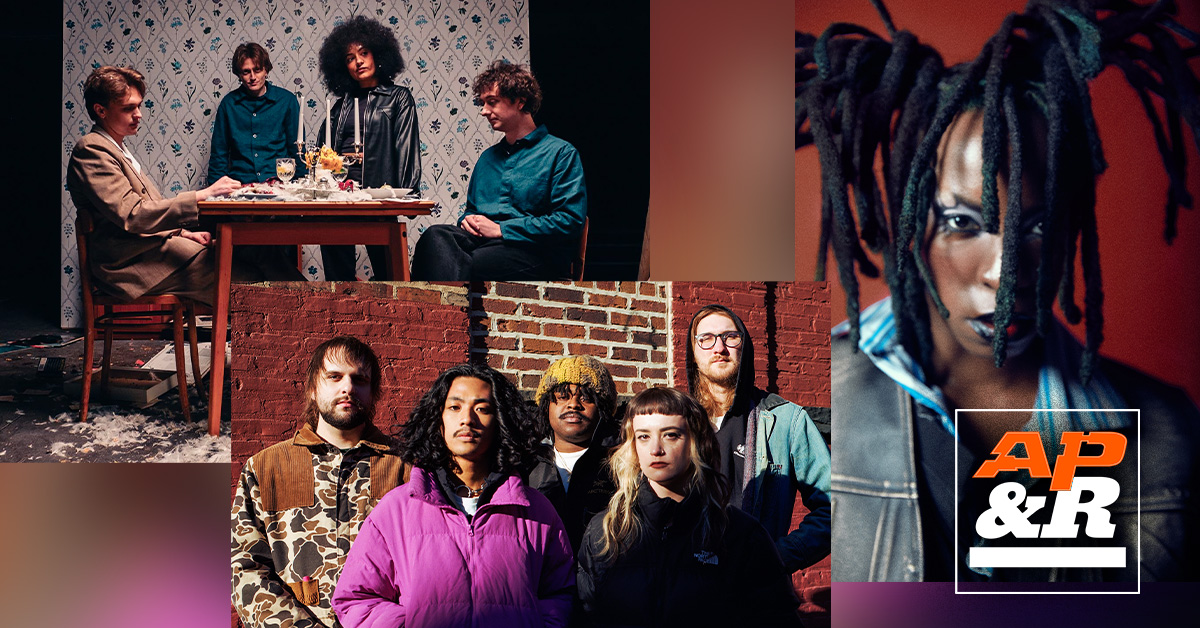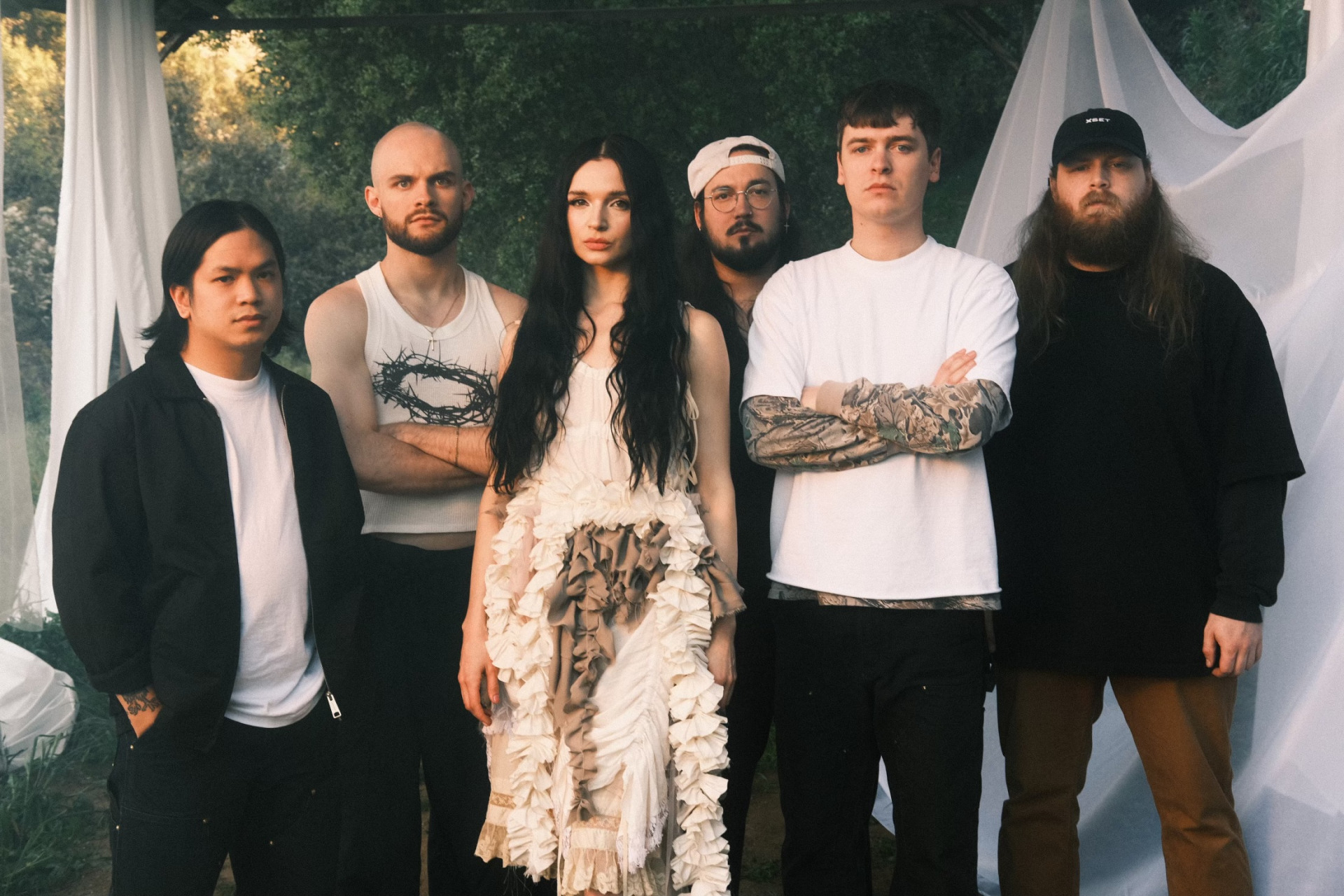
Interview: Erik Danielsson of Watain

Photo by Greg Cristman
…
The infamy surrounding black metal is officially boring. That’s old news for some, but it’s still controversy fodder for the sideline fan or the easily shocked or offended. The notoriety of Watain and, more specifically, their live show is well documented—it’s an event that, whether you’re a fan or not, should at least be experienced once. While one could talk about “trueness”—in all seriousness, or while stifling a gag-reflex—into the next millennium, those of us plebs who are content with bouncing a favorite riff around our skulls will continue to do so.
Consider this: black metal will never die, but we will. For all of the “black metal controversy” discussion, handwringing, justifiable concern, unjustifiable grandstanding, etc. that’s dominated message boards, news feeds, and all manner of tiny smoke pavilions at shows, the music remains the same. Black metal has never been about any ideology outside those rooted in isolation and the rejection of authority in all its forms. It’s more than fair to draw a line of distinction between what’s considered music and what’s little more than horseshit propaganda, so perhaps in the name of all that is unholy and evil, let’s stop referring to the latter like it’s worthy of our or anyone else’s goddamn time.
Since 1998, Watain have continually offered compelling and often remarkable interpretations of black metal and its aesthetic that, though perhaps originally born in the frozen night of Scandinavia, had long been in the hearts of fans of every kind and culture who had been searching for some solidarity and another voice in the darkness. I talked to Watain vocalist/bassist Erik Danielsson to discuss the band’s recent announcement of their show at the Brooklyn Night Bazaar on Sunday, June 15th, (win a pair of tickets!) and with the hopes that Erik might offer what’s obviously an influential perspective on a discussion that, while mired in the replete use of hyperbolic adject-heavy concern, is no less important and crucial to understanding the beauty and power of this music.
What initially drew you in to want to create music, Erik? Was there a specific song or band you heard that worked as that first inspiration for you?
I think there were a number of those. To not let that answer be one hour long, I think I could try to narrow it down.
I was introduced to music at a very young age, and I had no other interests as a kid. I played tapes on my tape recorder in my room from when I was five years old and up, mostly like Beatles and Stones. I got into Metallica when I was nine or ten, and I ended up seeing Metallica when I was ten years old. I think that kind of changed everything for me. Not only did heavy metal itself come into my life as a thunderstorm, but the results of that being at a concert when you’re that young.
I come from a pretty, not secluded place—but a smallish town. My perception of music was pretty out there. I didn’t understand that there were even other people that were into this kind of music. I didn’t understand that at all. I had like one friend who was into hard rock music, so when I found myself with 30,000 other people at a stadium watching Metallica and seeing them shooting pyro into the sky and hearing all those songs that I’d been listening to daily, it kind of did something to me. Not only did it fuel my interest in music but also it made me want to discover the whole performing side of it more, because I was so taken away by the whole concert scenario idea. I found it really fascinating. I remember drawing stage designs in my room after that show. That was what I did. [Laughs] That was definitely a major thing that changed my course quite drastically.
That early fascination with performance is something that makes sense just given the fact that Watain’s shows are just as well known and notorious as the music itself. How much thought do you personally put into each of those live performances? What mindset do you find yourself in just from a preparation standpoint?
The shows have become a central thing to the extent that the live show is where everything comes together. I don’t mean just getting up on the stage and playing things live. It’s where everything manifests and materializes, and Watain is not only about music. It has a spiritual foundation and a very aesthetic foundation that permeates everything we do. Once again, though, I think that the live show is perhaps where all those things truly become real. They come to life. With all that being said, I can’t say how much they mean to me and how constantly inspired we are each time we perform. Especially when we prepare for a new set of shows like we’re in the middle of doing right now. It’s always this process of “Okay, let’s see what we can do more.” There’s always these additional things and taking away of unnecessary things. It’s like a refinement. It’s really about taking it to the next level with each set of shows. It’s what we do, and I hope that’s evident, and I hope that people see that, because that’s really the main thing for us.
You mentioned spirituality and that’s something you’ve always been very open about, Erik, specifically with the importance you place on it as the driving force for what Watain does. What’s your evolution as a human being and as a musician been like since that Metallica show to where you are now?
I think that Metallica concert will always constitute one of the foundations for what I do as an artist. There will always be this great passion for heavy metal music being performed live. That’s one of my greatest passions in life, really, but there is also the other side, the spiritual side of it, which came perhaps a few years after that first show that I went to.
That’s another chapter in my life that somehow seamlessly aligned with the passion for music. I entwined those two and worked out a way to work with them side-by-side, both a thematic passion and devotion towards metal music and my spiritual side which, of course, is everything that I am. It constitutes the total foundation of my life. I’ve always found it a great challenge and a very inspiring challenge to combine those two, and I think it is somehow quite a rare thing within metal music to have those two things side-by-side. Okay, there are a lot of black metal bands that perhaps talk about this and that, and they talk about the devil, and they talk about being spiritual, but I’m talking about more than talk. I’m talking about actual doing. I think that is, still today, quite a rare thing. I’ve only seen very few other bands doing something similar. There is something I can appreciate about us being a little bit anomalous in that regard. To me, personally, it’s something that I’ve paved the way for myself. It’s something that I needed in my life, and I made it.
In talking about black metal, I wanted to get your perspective on something that seems to always run parallel to any conversation about this music. There continues to be a fairly popular assumption that black metal, and specifically its origins, are invariably associated with Anti-Semitism, homophobia, misogyny, and the embracing of what are obviously oppressive and bigoted ideologies. I’m curious to know what your take is on that discussion, Erik.
I have a pretty radical take on that discussion, I suppose. I keep that to myself most of the time, but I’ll put it simply. Black metal is the enemy. It is the enemy of society, and it is the enemy of the world as we know it. Black metal advocates the adversary – the one that walks against the currents of the world. We glorify the downfall of order. We glorify lawlessness. We honor the corruption and upheaval of moral codes.
With all of those things comes descent and stagnation and human failure, really. Black metal is that revolutionary spark within a society that is controlled by order freaks and by conservative, uptight human beings that think that they have found the perfect way to live. We question that to the extent of taking upon ourselves the role of the enemy. Black metal is really the soundtrack to those ideas. It is a very destructive form of art, but to me what it represents, first and foremost, is freedom. It is the freedom to actually make your own rules according to your own holy will. And that is the most beautiful thing one can ever do. We do that in the name of our gods, and those gods – they look upon this world, and they look upon society with contempt and with a will to destroy it in order to let their kingdom rise from it.
Black metal will always be surrounded by controversy. It evokes energies. It thrives upon powers that are counteractive to what people view as law and order and ethics and so on. What I do need to underline here, because here is where people get it wrong: one of the greatest evils that people today know, be it an alternative culture or in conservative government halls, is Nazi Germany and Anti-Semitists and all of that. That is the one thing you cannot glorify. The Anti-Semitic and right-wing conservative connections that people have long accused black metal to be a platform for have very little to do with what we stand for. To me, it should be quite obvious that we would have been some of the first people to be executed in the Third Reich with the whole idea of the National Socialists being based upon a kingdom of bright-eyed little Aryans, and we are quite honestly the very opposite of that. [Laughs] There’s an extremely important line to draw there, and I’ve realized that that’s the only devil that people know these days.
To me, Erik, the whole idea of a black metal band or any metal band for that matter spouting off any kind of ideology based in government is fucking laughable, because it goes against the heart of what started this music in the first place. I find it absurdly ironic, as you indicated, that a band or artist might talk the talk of black metal’s isolationist and anarchic foundations, yet embrace the absolutism and oppression of what was little more than a venomous, murdering thug in a uniform.
Racial ideas, to me—from my perspective as a spiritual person—racial ideas are really irrelevant. I study other cultures, and I am very interested in radical ideas of viewing the world, but when it comes to racial ideas, I’ve never really found a speech or text about it that could make sense to me. When we view the world from a spiritual perspective, racial ideas become very mundane, and they become very insignificant. We are talking about an animal that developed into man and that is, to me, where my primary enemy lies. Not in any specific kind of that animal. We are all that animal, and I am completely uninterested in any ideas contrary to that, to be honest.
Let’s talk about the Brooklyn show for a second, Erik. What brought this together for you guys, and what can those attending the show expect to see?
What happened was basically we were looking at a European festival summer. That’s something that usually happens every summer. We book up a lot of festivals and kind of carefully select the best ones, and we had ten headliner shows selected in Europe this summer starting on Friday, the 13th, and then these guys got in touch from Brooklyn all of a sudden, and they were like “Hey, we heard that you guys often have kind of a hard time bringing everything over and doing the stage show, and that you’re often not allowed to do pyro, and all of that, and we’re really interested in setting up a show where you can do all of that. We have a place in Brooklyn where you can do all of that. We’re open for everything.” It became a last minute logistical nightmare [laughs] to get everything set up, but we decided to go for it anyway. There’s a need to set that up in the US in that medium, and for a long time we’ve been quite frustrated about not being able to present the whole show there and actually show our US fans, who are some of the most diehard fans that we have, the actual show that we do. I cannot say at this point whether or not it’s going to be an exact setup similar to the ones we have in Europe, but it’s definitely going to contain elements of a quite severe nature that haven’t been possible to use yet in the States. I actually cannot wait. It’s gonna be a really good and fucking powerful show, I think.
…










